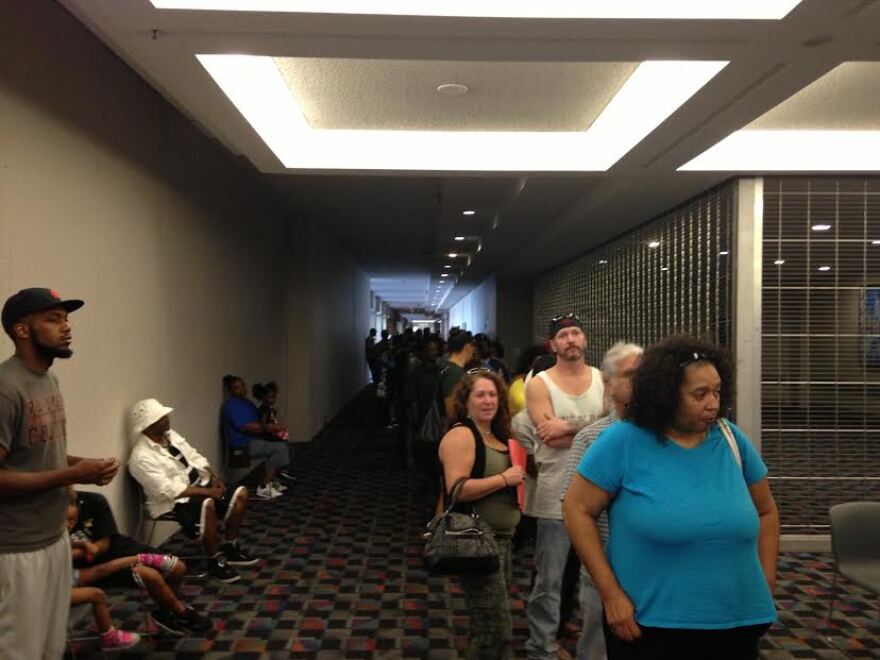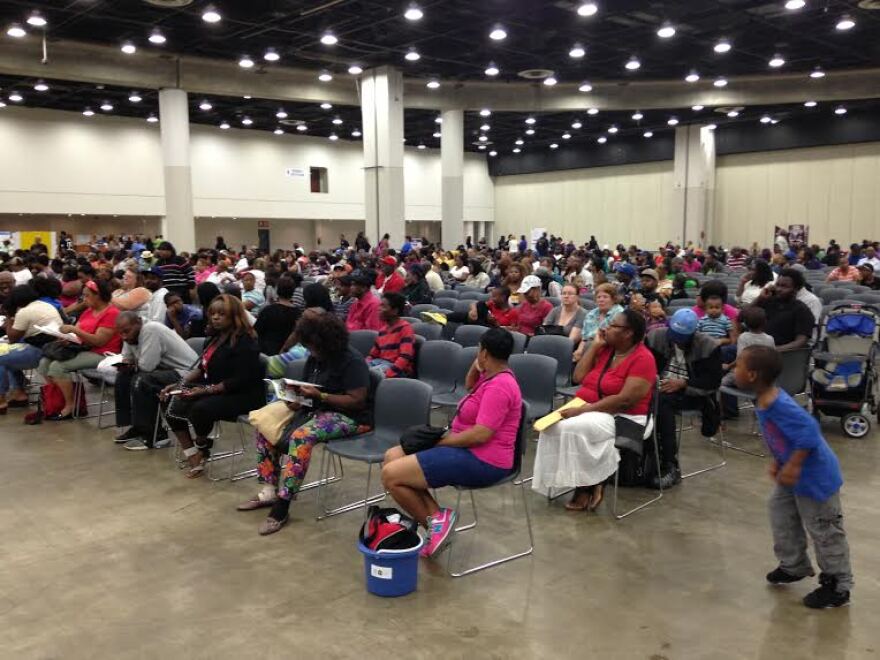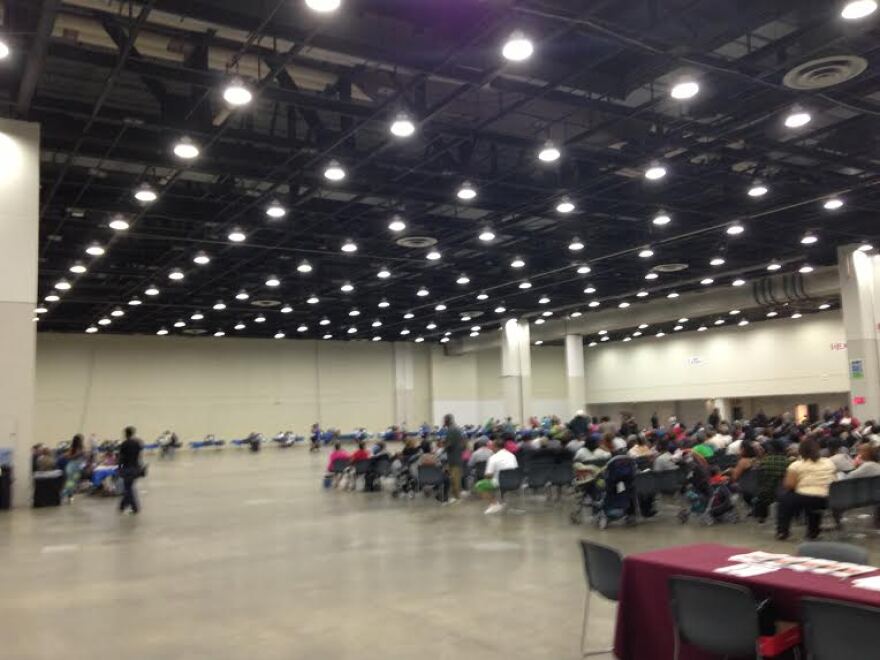Starting Tuesday, Detroit will resume shutting off people's water if they’re behind on their bills.
For the last month, the city put a moratorium on those shutoffs, which have been internationally criticized as inhumane.
That pause gave people a chance to get on payment plans with the water department.
So on Saturday, nearly a thousand Detroiters lugged their kids and strollers and grandparents out to a sign-up fair at the Cobo Center downtown.
Wait is up to 5 hours to pay your bills in person
The line to get into the sign-up fair was huge.

There are kids that have sprawled out on the floor.
People say that they’re here because they’re hoping they can get some kind of assistance.
Luna Simpson has been waiting here for 5 hours with her grandsons, CJ and Joshua, who live with her.
The two boys are wearing matching red Iron Man t-shirts and waiting patiently in the crowd.
“I told them we were going to come here, get on the budget plan so we could save some money,” says Simpson. “So we could do some extra stuff with the extra money.”
Fun stuff, I ask?
She laughs, shaking her head.

“More bills: school clothes, gas…"
One by one, people told what they need to pay to keep their water on
Now, their long wait is about to pay off:
Their number is finally called, and they’re sent to one of the dozens of tables where water department representatives are helping people work out payment plans.
“And you’re showing a balance of $399.74,” the attendant tells Simpson.
“Um, you would be able to go onto a payment arrangement for $39.97. You want to go onto a payment arrangement today?”
“Yes!” says Simpson.
That’s a 10 percent down payment on what Simpson owes, which is what the water department is now requiring people pay up front, within the next 2 weeks, before they can get on a payment plan.
Once people are on a plan, their water won’t be turned off – so long as they stay current on their bill.
People have 24 months to pay off the rest of what they owe, on top of their monthly bill.
Is the city doing enough to help?
This is more flexible than what the department used to offer.

And that’s not a coincidence: after all the protests and UN criticism about the city turning off people’s water, city officials are bending over backwards to assure residents that they are on their side.
But what if someone can’t get their hands on that 10 percent payment in the next couple of weeks?
Vivian Logan came here because she owes $3,000 on her water bill, and she says she doesn’t have the $300 she needs to get on a payment plan.
“That’s the problem. And even if I could get it in 14 days, I’m not going to be able to pay $300 possibly a month, on top of my other bills after that.”
There are nonprofits and aid groups who want to help people like Logan.
The Detroit Water Fund, for example, has at least half a dozen booths at the fair.
To qualify for their help, people need to:

1) Make that first 10% down payment, and
2) Fall within 150% of the poverty line, which calculates to about $35,775 for a family of four.
There’s also help from the United Way, but their income restrictions are a little lower: you need to make less than 120% of the federal poverty line.
Logan says she’s just a little higher than that cut off, and that she doesn’t have money for the down payment required to get aid from the Detroit Water Fund.
So, what can she do now?
“Who knows? You tell me,” Logan says. “You tell me who I can refer to so I can get some help.”
For many, the day ends in relief
“What we’ve found is that people have been able to find that assistance. They’ve been able to go to their friends, to their church, family members,” says Alexis Wiley, Mayor Duggan’s chief of staff.
Luna Simpson, the grandmother of the two little boys, is one of those fortunate people.
She looks hugely relieved as she makes that first down payment, smiling while she tells the boys what they can afford, now that they don’t have to worry about losing their water.



